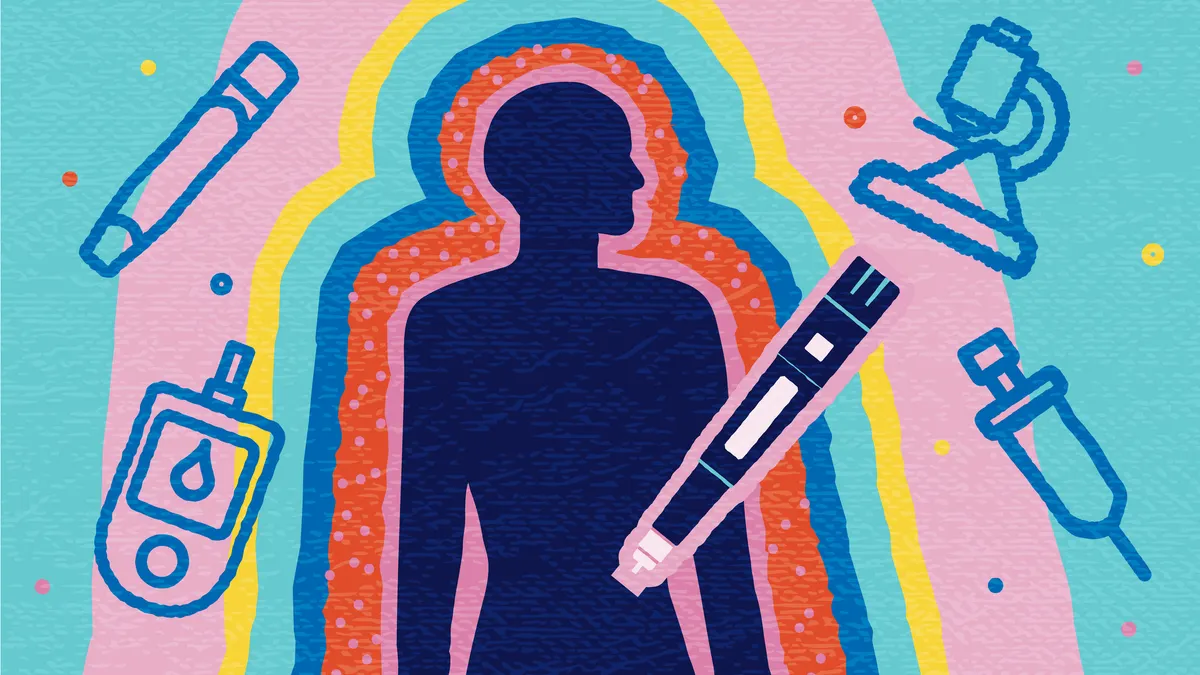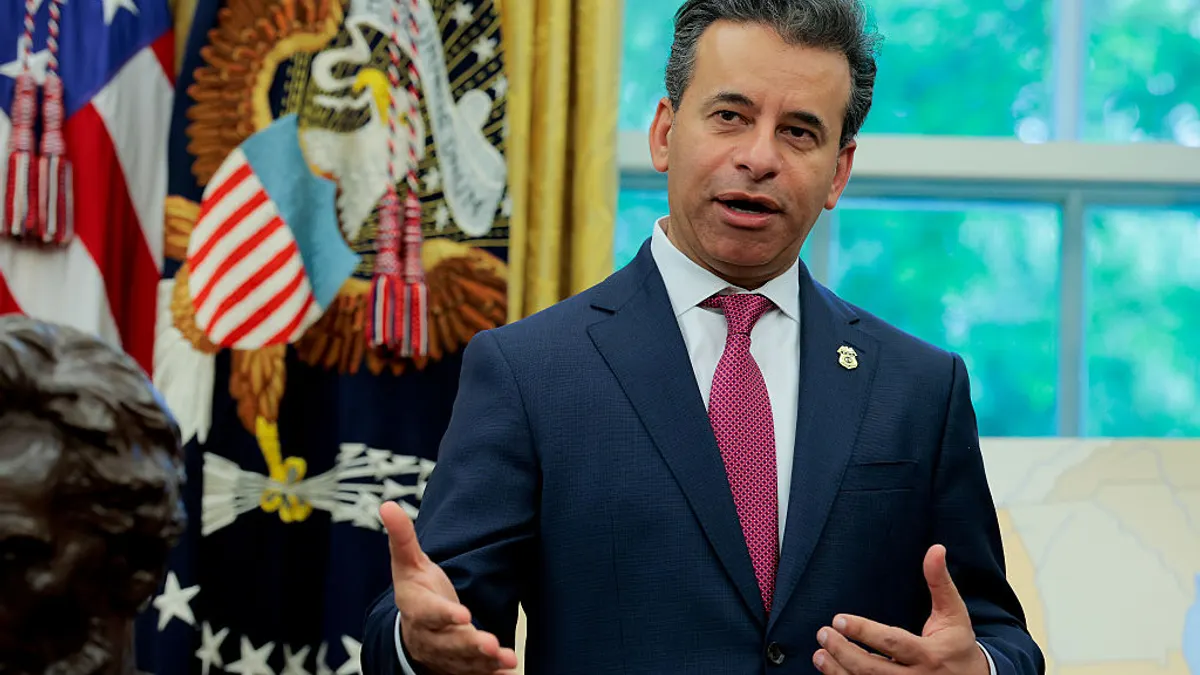When Sanofi announced its collaboration with the AI-based drug development company Exscientia at the start of the year, the agreement’s eye-popping size helped it grab headlines around the industry. With a potential total value of $5.2 billion, the deal is Sanofi’s largest AI tie-up, and one of the deepest investments in the technology by a Big Pharma, to date.
The companies aim to develop 15 new drug candidates that will target cancers and other diseases related to the immune system. Using its AI platform, Exscientia will work on early discovery and development. Once a promising candidate is identified, Sanofi will take it from there, ushering the drug into clinical testing and, if all goes well, manufacturing and commercialization.
The agreement marked a milestone for AI by demonstrating how seriously major pharma companies believe in the technology’s potential to accelerate drug development. But for Sanofi, buying into AI is also part of a bigger-picture plan.
Under the CEO, Paul Hudson, the company laid out a reorganization strategy in 2019 that involves divesting lower-growth areas of the business, while honing in on high-growth indications areas, and in particular, on developing paradigm-changing treatments that could become blockbusters.
Here, Sanofi’s global head of research and chief scientific officer, Frank Nestle, discusses the French pharma’s deal with Exscientia and how it fits into the company’s broader transformation.
PharmaVoice: Sanofi has a relationship with Exscientia that goes back a number of years. Why did the company decide to embark on this larger collaboration? What sealed the deal for Sanofi?
Frank Nestle: No. 1, you really have to have a good connection between both parties — and I'm jokingly referring to the fact that the chemists need to have chemistry. And that happens when two professional teams have worked together over many years. And we've seen with our own eyes and with our own ears that there's an incredible quality of science, and molecules being made with high quality at Exscientia. And when we looked at who was a leader in the field of AI, Exscientia was a clear front runner. Their team has not only moved three drugs into phase 1 studies based on their AI drug discovery capabilities, they have worked with pioneers in the field of AI. So it was a natural partnership.
And this innovation is exactly what we want at Sanofi. It's also an area which is of strategic importance to Sanofi, which is on a transformation journey under the leadership of our CEO, Paul Hudson. And obviously, we’re doing this not only by partnering, but also by transforming our own internal drug discovery approach.
Tell me more about those larger transformations happening at Sanofi.
We are transforming into a specialty care company with a major focus on oncology and immunology. As part of that transformation journey, one of the key goals is very simple: Bring medicines faster to patients. And that ultimately means cutting timelines, and changing the paradigm of drug discovery and R&D. Currently, the economics say that you need 13 years and $1-2 billion to bring a medicine to a patient. Can we completely change that?
The other question is: Can we deliver higher-quality medicines, which have better, higher-quality targets that are better tailored to patients? That's typically a precision medicine approach. And what is really key to this ambition — bringing medicines faster to patients and making higher-quality medicines — is artificial intelligence.
How is AI helping Sanofi reach these goals?
It’s giving us the ability to take large datasets that we're creating every day in our laboratories, and now in our clinical trials, and then finding signals in a way we couldn't before. For example, instead of synthesizing 5,000 molecules to get to a clinical candidate, we can do this with 500. And we can cut the timelines to get a clinical candidate from four to five years to maybe two or three years. So, this is a huge opportunity.
Are those improvements in the timeline something you’re seeing broadly with AI technologies? Or are they being achieved specifically with Exscientia’s platform?
We’re talking specifically about how long it takes to get a candidate into phase 1 trials, and we want to cut these timelines in half. I see this as an ambition. But it’s also founded on realistic expectations based on our own experiences.
How will you measure success with your partnership with Exscientia?
The absolute test of the partnership will be how many clinical candidates we delivered with high quality. From Sanofi’s perspective, we'll have the first insights into that in about two years’ time.
Are there any steps right now in the early drug development process where AI still doesn’t provide the kind of capabilities you want? In other words, are there AI gaps that need to be filled?
I think you could describe drug discovery as a learning problem, where you have to iterate information from large data sets and try to extract signals. That starts the process of drug discovery, and that's where AI is great. But what we need to provide is data sets that allow AI to shine.
[At Sanofi] for example, we now have a new chief data officer, and are creating the foundational capabilities internally to create data sets in a findable approach. That’s where an AI algorithm can truly shine and is not, for example, chasing false positives or false negatives, but can really hold [researchers] to the right signals.
I want to step back now to look more broadly at the AI landscape in pharma. Do you think that AI is now a “must have” technology for pharma companies?
AI has been around since the early ‘50s, and there have been multiple iterations of excitement around AI and its applications. But what we've been seeing is that, with advances in both the computer side, but also in the algorithmic development side, and with its application to computer vision, and to natural language analysis and processing, we really have reached a major inflection point. This is the moment where Big Pharma gets into the game.
It's now imperative if you want to really transform your drug discovery paradigm… it's very difficult to imagine doing this without having a clear AI strategy. What we have internally at Sanofi is called an AI research factory strategy. We are reimagining end-to-end insights, from disease mechanisms to target identification to molecular design and then biomarker-guided precision medicine trials. All of those individual components are powered by AI.


















